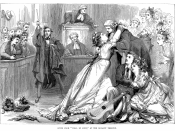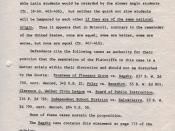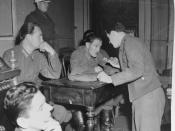Criminal procedure governs the investigation of crimes; the arrest, charging, and trial of accused criminals; and the sentencing of those convicted. It also regulates the convicted person's possible appeal for review of the trial court's decision. A criminal defendant who pleads not guilty is entitled to a public trial and has the right to be present at the trial. During the trial a judge or jury determines whether the defendant is guilty or not guilty based upon the application of criminal law to the facts of the case. The criminal defendant must be given the opportunity to confront and cross-examine the prosecution's witnesses and to present evidence in his or her own defense.
When people are arrested they MUST be informed of their constitutional rights. People have the right to know the crimes in with which they are charged and the names of the officers making the arrest. They have the right to call their families or attorneys.
People who can not afford an attorney have the right to have the court appoint one to represent them.
The privilege against self-incrimination allows the defendant to decline to take the witness stand in his or her own defense. It also generally entitles the defendant to have the judge instruct the jury that failure to testify shall not be taken as evidence of guilt. The prosecution must not knowingly use false testimony against the defendant or suppress evidence favorable to the defendant. Generally speaking, the prosecution may not use evidence obtained in violation of the defendant's constitutional rights. For example, evidence collected during an unreasonable police search or confessions obtained by torture are inadmissible at the trial to prove the defendant's guilt.
In criminal cases, the defendant is presumed innocent until the prosecution proves each element of the crime beyond a reasonable...


